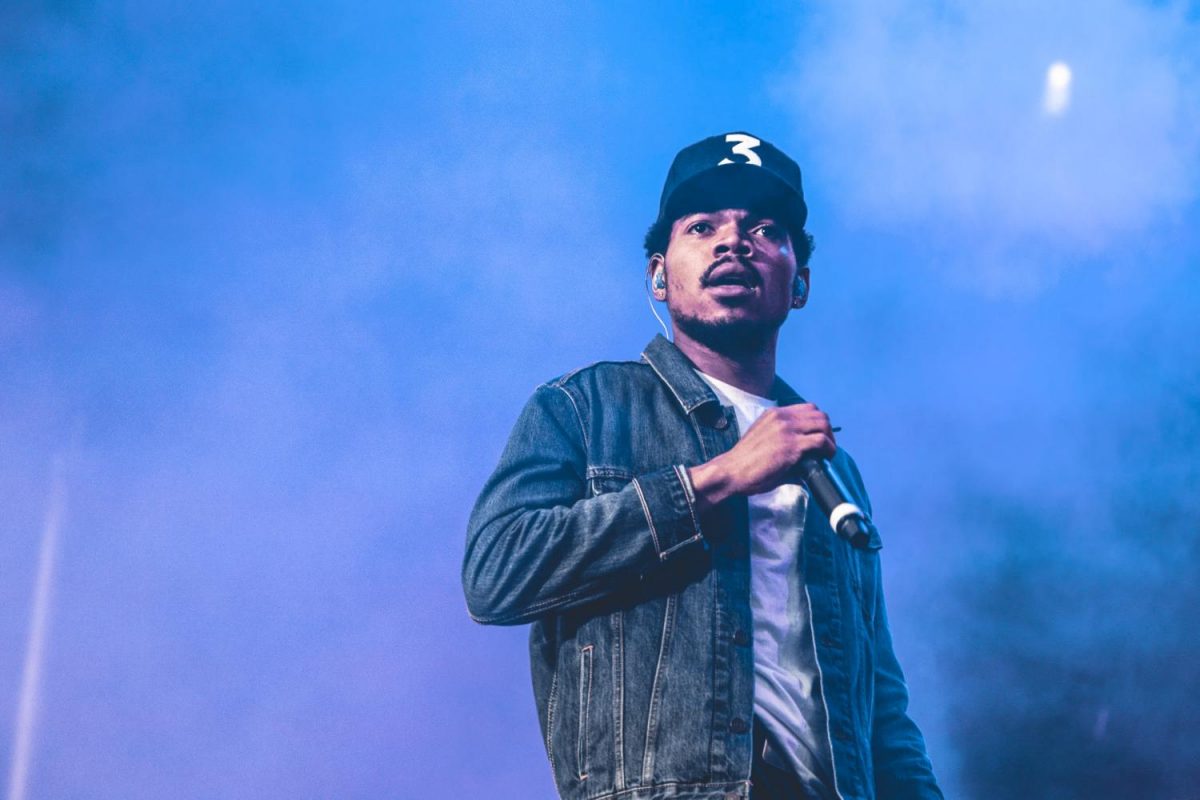Power Shifts in the Music Industry
October 5, 2017
In the conversation about the politics of the music industry, there is a common notion that the internet age catalyzed a democratization — that major record labels no longer hold omnipotent power and that rather, artists can thrive through new platforms like SoundCloud and Bandcamp.
Chance The Rapper is the poster boy of the possibilities of this new path to fame. However, diving deep into his discography reveals notable caveats. Using Chance as a case study ultimately raises the question of what it means to be an independent artist. Moreover, it exposes that the power might instead shift to an entity far bigger than every major record label combined: Apple. Evidence that Chance is the current face of artist freedom is not hard to find. There are articles that identify him as the first truly independent artist, and he tops lists like Mic’s “Artists that the Music Industry Will Never Own.” He further pedals this notion by criticizing labels in interviews, mocking them at concerts and referencing his independence in high profile songs including his “No Problem,” DJ Khaled’s “I’m the One” and Kanye West’s “Ultralight Beam.”
But how legitimate is Chance’s independence? Although he has never signed with a record label, he has had contractual relationships with Apple. In 2016, Chance’s “Coloring Book” spent its first two weeks as an Apple Music exclusive, and he shot a commercial for the corporation. Additionally, in 2015 his band Donne Trumpet & The Social Experiment released “Surf” as an iTunes Exclusive. Is signing a deal with Apple different from working with a record label simply because labels’ contracts are for longer periods of time? Regardless, during “Coloring Book’s” first two weeks, Chance wasn’t conventionally independent.
Moveover, it could be argued that Chance is dependent on major labels. After all, the biggest song he’s been a part of is DJ Khaled’s “I’m the One.” Meanwhile, it’s no coincidence that Chance’s only single as a lead artist that has made the Billboard Hot-100, “No Problem,” features Lil Wayne and 2 Chainz. Probing into the credits of “Coloring Book” reveals a further relationship between Chance and major labels since typically artists’ labels receive royalties for features. While the project features some local Chicago acts, including the Chicago Children’s Choir, 17 out of the 23 featured artists appear to be signed to major labels. Interestingly, 11 of these artists are signed to subsidiaries of Universal Records and five belong to its subsidiary Def Jam. Chance will likely continue to work with major labels since doing so has led to his biggest successes. How different is that dynamic from being contractually obligated to work with them?
Holistically analyzing all artists’ claims to independence would be a lengthy task. But from a glance, Chance appears to be representative of the current state of the discourse. For example, Frank Ocean’s “Blonde,” his first independent album, was released as an Apple Music exclusive and featured collaborations with major label artists including Beyoncé.
Situations like Chance’s beg the question: what does is it even mean to be an independent artist? While he isn’t entirely free from contracts and reliance, if Chance makes the music he wants in the manner he wants and only signs deals voluntarily, could he still be considered independent? By the same logic, any artist content with their major label deal could be also considered independent.
Chance’s brand of independence in the music industry might boil down to semantics. But a more significant shift of power may be occurring in the backdrop. Demystifying his deal with Apple, Chance tweeted, “I needed the money and they’re all good people over there.” While no label could sway Chance, Apple unsurprisingly did the impossible as it is the world’s largest corporation in terms of market cap. Alongside Apple, three of the world’s other five biggest companies under this measure, Google, Amazon and Microsoft, have music streaming services. Such corporations possess the capital to potentially inflict anomalous rifts on the music industry as Apple has done. Unfortunately, unlike record labels, these corporations do not have decades of intimate experience working specifically with music. Time will tell if those are the power shifts to keep an eye on instead of romanticizing claims of independence by artists like Chance.
A version of this article appeared in the Thursday, Oct. 5 print edition. Email Satish Reginald at [email protected].
























































































































































